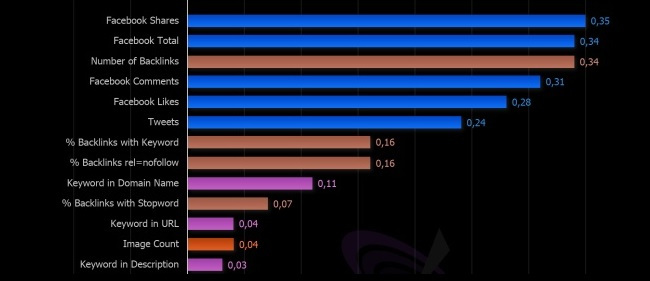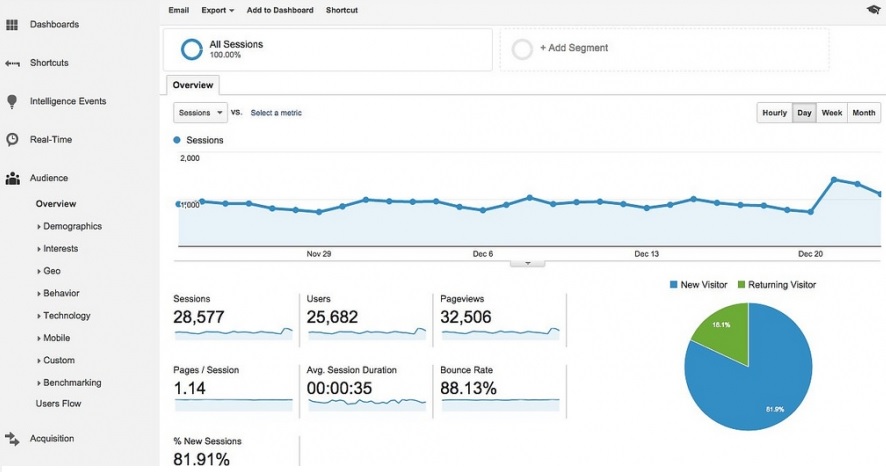does social media posting help in seo
In the ever-evolving landscape of digital marketing, the question of whether social media posting influences Search Engine Optimization (SEO) is a topic of considerable significance. While social media and SEO may seem like distinct realms, they share a dynamic relationship that goes beyond mere engagement metrics. In this exploration, we unravel the symbiotic connection between social media posting and SEO, delving into how a strategic social media presence can indeed impact your website’s search engine performance.
1. Social Signals and Search Engines:
Social signals refer to the activity and engagement your content receives on social media platforms—likes, shares, comments, and overall visibility. While Google has stated that social signals are not direct ranking factors, there is a growing consensus in the SEO community that these signals indirectly influence search rankings. Quality content that resonates on social media often attracts organic backlinks, contributing to improved SEO.
2. Enhanced Brand Visibility:
Social media platforms serve as an additional channel through which your brand can enhance its online visibility. Consistent and engaging social media posting exposes your brand to a wider audience, potentially leading to increased brand searches on search engines. This surge in branded searches can positively impact your website’s authority and relevance in the eyes of search algorithms.
3. Backlinks from Social Media:
While not all social media links carry the same weight as traditional backlinks, they still contribute to your website’s link profile. When your content is shared on social platforms, it increases the likelihood of others linking back to your website. Backlinks from reputable sources, including social media, are a crucial factor in SEO, influencing your website’s authority and credibility.

4. Indexation of Social Media Profiles:
Search engines often index social media profiles, especially those from prominent platforms like Facebook, Twitter, and LinkedIn. When users search for your brand or related keywords, these social media profiles may appear in the search results, providing additional touchpoints for users to discover your brand and navigate to your website.
5. Local SEO Impact:
For businesses with physical locations, social media plays a pivotal role in local SEO. Local search engine results often incorporate information from social media profiles, including business hours, reviews, and location tags. Maintaining accurate and updated information on social platforms contributes to a consistent online presence and positively influences local SEO.
6. Content Discovery and CTR Boost:
Engaging social media content can act as a catalyst for content discovery. When users encounter compelling snippets or visuals on social media, they may click through to your website, increasing Click-Through Rates (CTRs). Higher CTRs are associated with positive user signals, a factor that search engines consider in evaluating the relevance and quality of your content.
7. Social Media Profiles in SERPs:
Search Engine Results Pages (SERPs) are evolving to include more than just traditional website listings. Social media profiles are increasingly featured in SERPs, providing users with diverse avenues to explore content related to their queries. Optimizing your social media profiles with relevant keywords and information enhances their visibility in these enriched SERP features.

8. Brand Authority and Trustworthiness:
A robust social media presence contributes to building brand authority and trustworthiness. Brands that actively engage with their audience on social platforms are perceived as more authentic and reliable. This positive brand sentiment can translate into increased organic searches and improved SEO performance.
9. Social Sharing and Virality:
The nature of social media is inherently shareable, and content that resonates can quickly go viral. Viral content attracts attention, generating natural backlinks and mentions across the digital landscape. While not every piece of content achieves virality, the potential for widespread sharing creates opportunities for increased visibility and SEO impact.
10. Rich Media and Featured Snippets:
Certain social media platforms, such as YouTube or Pinterest, are rich in visual or multimedia content. Optimizing and sharing such content on these platforms increases the likelihood of your content appearing in featured snippets or multimedia results on search engines, enhancing your website’s visibility.
In conclusion, the relationship between social media posting and SEO is nuanced and multifaceted. While social signals may not directly determine search rankings, the cumulative impact of a strategic social media presence can significantly contribute to your website’s overall SEO health. By fostering engagement, building brand authority, and generating shareable content, your social media efforts can create a ripple effect that positively influences search engine visibility and user interactions with your brand. Embracing this symbiotic relationship positions your digital strategy for success in the interconnected realms of social media and SEO.
11. Social Media Profiles as Branded Search Results:
Well-optimized social media profiles often appear prominently in branded search results. When users search for your brand name, having active and optimized social media profiles can dominate the search results, presenting users with a comprehensive overview of your brand’s online presence.
12. Social Listening for Keyword Insights:
Social media platforms serve as real-time hubs of conversations. Engaging in social listening—monitoring and analyzing discussions related to your industry, brand, or keywords—provides valuable insights. These insights can inform your overall content strategy, helping you align your website content with trending topics and user interests.
13. Authority Signals from Social Shares:
While the exact impact of social shares on SEO is debated, there is evidence to suggest that content with high social engagement may gain authority signals. When content is widely shared on social media, it can attract attention from influencers and authoritative websites, leading to increased backlinks and improved SEO performance.

14. Google’s Knowledge Graph Integration:
Google’s Knowledge Graph aims to provide users with a comprehensive understanding of entities, including businesses and brands. Active and well-maintained social media profiles contribute to the information available in the Knowledge Graph, enhancing the completeness and accuracy of your brand’s representation in search results.
15. Social Media Listings in Local SEO:
For businesses with physical locations, local SEO is crucial. Social media profiles play a role in local SEO by contributing to local business listings. Optimizing your social media profiles with accurate business information, including location details, can positively impact your local search visibility.
16. Mobile Search and App Integration:
With the prevalence of mobile search, social media profiles are often integrated into mobile search results. This is particularly relevant for apps, where social media presence can influence app store visibility. Google’s app indexing considers social signals when determining the relevance and popularity of apps.
17. Social Media Platforms as Search Engines:
Many users turn to social media platforms as search engines in their own right. Optimizing your content for search within social media platforms enhances its discoverability. Hashtags, keywords, and trending topics on platforms like Twitter or Instagram contribute to content visibility within these micro-search ecosystems.
18. Social Media Sharing Buttons on Websites:
Including social media sharing buttons on your website encourages users to share your content on their social profiles. While this may not directly impact SEO, it extends the reach of your content and increases the likelihood of others discovering and linking to it, thereby influencing SEO indirectly.
19. Employee Advocacy and Amplification:
Encouraging employees to share company content on their personal social media profiles amplifies your brand’s reach. This form of employee advocacy can lead to increased content visibility, social signals, and potentially more backlinks as the content gains traction within professional networks.
20. Social Media Analytics for Strategy Refinement:
Utilize social media analytics tools to measure the performance of your social media posts. Analyzing metrics such as engagement, reach, and click-through rates provides valuable data for refining your social media strategy. Insights from analytics can guide your content creation and posting schedule to maximize impact.
21. Dynamic Content Syndication:
Syndicate your website content on social media platforms dynamically. Tools and plugins that automatically share your latest blog posts or updates on social media ensure a consistent flow of content, keeping your audience engaged and signaling to search engines that your website is regularly updated.
22. Social Media Advertising Impact:
While paid social media advertising doesn’t directly impact organic search rankings, it can contribute to brand visibility. Increased brand visibility can lead to more branded searches, and as users become more familiar with your brand, they may be more likely to click on your organic search listings.
23. Local Business Reviews and SEO:
Online reviews on social media platforms, particularly for local businesses, contribute to local SEO efforts. Positive reviews on platforms like Google My Business and Facebook can influence local search rankings, as search engines consider user sentiment and feedback.
24. Social Media Content in Rich Snippets:
Certain types of social media content, such as reviews or structured data, can be featured in rich snippets on search engine results pages. Optimizing your social media content with relevant markup can increase the likelihood of your content being showcased in these enhanced result features.
25. Integrated Social Media and Content Hubs:
For brands with content hubs or resource centers, integrating social media feeds into these hubs creates a cohesive user experience. This integration not only enhances user engagement but also signals to search engines that your brand is actively participating in relevant online conversations.
26. Consistency Across Online Ecosystems:
Maintaining consistency in your brand messaging, visuals, and information across social media platforms and your website is essential. A cohesive online presence builds brand authority and helps search engines understand the relevance and legitimacy of your content.
27. Social Media as a Search Discovery Tool:
Users often turn to social media platforms to discover content, products, or trends. Optimizing your social media posts with relevant keywords, hashtags, and descriptions makes your content more discoverable within the platform’s search functionality, influencing user awareness and engagement.
28. Social Media and Video SEO:
Video content is increasingly prominent on social media platforms. Platforms like YouTube, which is also a social media channel, are significant for video SEO. Optimizing your video content on these platforms, including relevant titles, descriptions, and tags, can contribute to increased visibility in both social media and traditional search results.
29. Social Media Cross-Linking Strategy:
Strategically cross-linking between your social media profiles can create a network of interconnected online assets. Linking from one platform to another reinforces your brand presence and can indirectly impact SEO by influencing how search engines perceive the interconnectedness of your online properties.
30. Social Media and Mobile-First Indexing:
With Google’s mobile-first indexing, the mobile version of a website is considered the primary version for ranking and indexing. Social media posts are often consumed on mobile devices, and content that is mobile-friendly and optimized for mobile users can contribute to a positive user experience, indirectly impacting SEO.
31. Social Media Insights for Content Strategy:
Leverage insights and analytics from your social media platforms to inform your overall content strategy. Understanding which types of content resonate with your audience on social media can guide the creation of content on your website, aligning it with the interests and preferences of your target audience.
32. Social Media Community Engagement:
Active engagement with your social media community fosters a sense of loyalty and community around your brand. Engaged communities are more likely to share, discuss, and link to your content. This organic amplification can result in increased visibility and influence search engine algorithms.
33. Social Media Crisis Management Impact:
How your brand handles crises on social media can impact its overall online reputation. Addressing issues transparently and effectively on social media can mitigate potential negative effects on your brand’s SEO. Positive sentiment and a well-managed reputation contribute to trustworthiness.
34. Utilizing Facebook Open Graph Protocol:
For websites with content that is frequently shared on Facebook, utilizing the Open Graph Protocol can enhance how your content appears when shared on the platform. This protocol provides control over the title, description, and image associated with your web pages when shared on Facebook.
35. Twitter and Real-Time Search Visibility:
Twitter is known for its real-time nature, and tweets often appear in real-time search results. Optimizing your tweets with relevant hashtags and keywords increases their visibility in Twitter search and, potentially, in traditional search results for real-time queries.
36. Social Media and Knowledge Panels:
Optimizing your social media profiles, especially on platforms like Google My Business, can contribute to the appearance of Knowledge Panels in search results. Knowledge Panels provide comprehensive information about your brand, enhancing your online presence.
37. Reddit and Niche Communities:
Engaging with niche communities on platforms like Reddit can have SEO benefits. While links on Reddit are “nofollow,” discussions and content shared in relevant subreddits can generate awareness and potentially lead to organic links from external websites.
38. Social Media and Influencer SEO Impact:
Collaborating with influencers for social media campaigns can extend your brand’s reach and impact SEO indirectly. Influencers often have dedicated followers who may discover and share your content, contributing to increased brand visibility and potential backlinks.
39. Pinterest for Visual Discovery:
Pinterest is a visual discovery platform where users often seek inspiration. Optimizing your Pinterest boards and pins with relevant keywords can enhance their visibility not only within Pinterest searches but also in traditional search results for image-based queries.
40. Social Media Monitoring for Brand Mentions:
Regularly monitoring social media for brand mentions provides opportunities for engagement and relationship building. Positive mentions can lead to shared content, while addressing negative mentions promptly can help manage your brand’s online reputation, influencing trust signals for SEO.
The interplay between social media posting and SEO is intricate and multifaceted. By understanding the diverse ways in which social media impacts online visibility, brand authority, and user engagement, digital marketers can craft comprehensive strategies that leverage the strengths of both realms. The evolving landscape of search and social media necessitates an integrated approach that considers the interconnected nature of online platforms and user behaviors.






